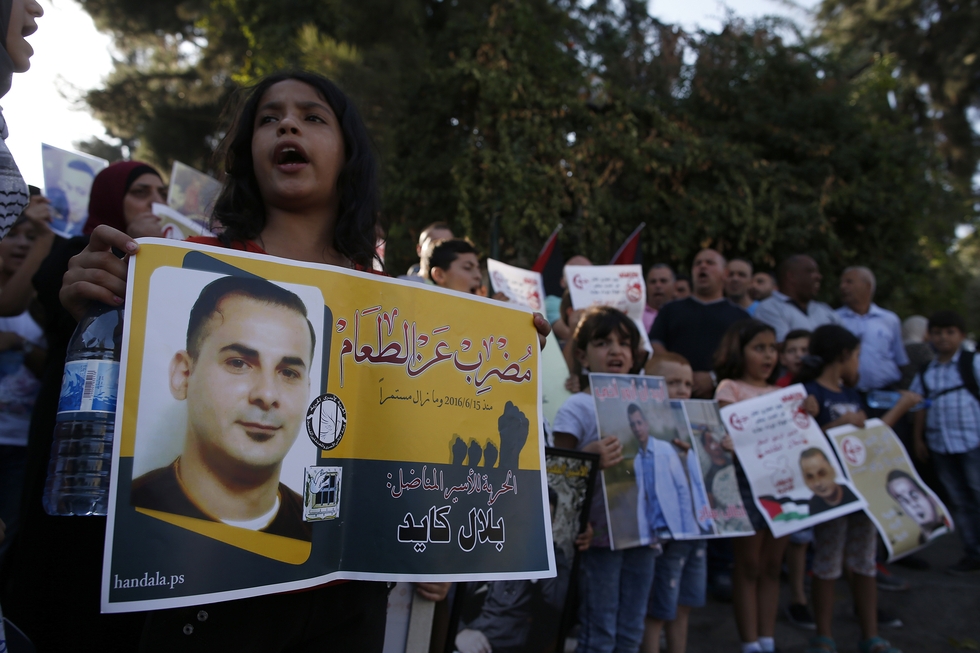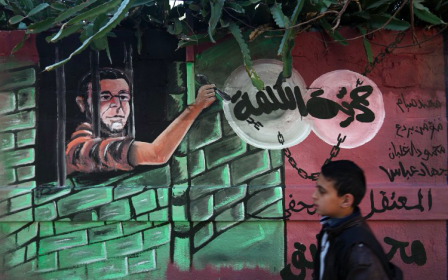Hundreds of Palestinians launch hunger strikes in Israeli jails

Hundreds of Palestinians in Israeli prisons observed a hunger strike on Friday, in a new wave of protest that Palestinian officials said was expected to grow.
Some of the strikers accused Israeli jailers of "harassment" while others refused food in solidarity with prisoner Bilal Kayed, who has been fasting for 52 days over his detention without trial, Palestinian officials said.
An Israeli prison official said that a large part of the protest seemed to be in response to a decision by authorities to hold prisoners from the militant movement Hamas in separate cells.
The Palestinian Prisoners Club said in a statement that 80 prisoners stopped eating on Friday, joining 325 who have been fasting for the past two days at various prisons in Israel and the occupied West Bank.
It said more were expected to join the hunger strike on Sunday.
The Palestinian Authority detainee affairs commission said inmates are protesting against a prison crackdown this week in which some were placed in solitary confinement, personal belongings were seized and prisoners were moved to other facilities.
It said that hunger strikers were being fined 600 shekels ($158) each and forbidden visits for two months.
The Israel Prisons Service said that during the week it had moved Hamas prisoners, searched cells and seized mobile phones, acting on "intelligence information about direction of terror from inside prisons".
A spokesperson for the prisons service told AFP there were currently 262 Hamas prisoners on hunger strikes, along with 93 from leftist group the Popular Front for the Liberation of Palestine (PFLP) fasting in solidarity with Kayed.
Kayed was to be released in June after serving a 14-and-a-half-year sentence for activities in the PFLP.
Instead, Israeli authorities ordered that he remain in custody under the administrative detention law, which allows prisoners to be held without trial for renewable six-month periods.
Kayed, 35, is suffering from failing kidneys and has lost at least 30kg, Palestinian officials say.
Administrative detention is used by Israel to allow authorities to hold suspects while continuing to gather evidence, but it is widely criticised by rights groups for the way it is used to hold people who have committed no offences or whose sentences have already been served.
The system has been criticised by Palestinians, human rights groups and members of the international community.
Of more than 7,500 Palestinians currently in Israeli jails, about 700 are being held under administrative detention, Palestinian rights groups say.
New MEE newsletter: Jerusalem Dispatch
Sign up to get the latest insights and analysis on Israel-Palestine, alongside Turkey Unpacked and other MEE newsletters
Middle East Eye delivers independent and unrivalled coverage and analysis of the Middle East, North Africa and beyond. To learn more about republishing this content and the associated fees, please fill out this form. More about MEE can be found here.




